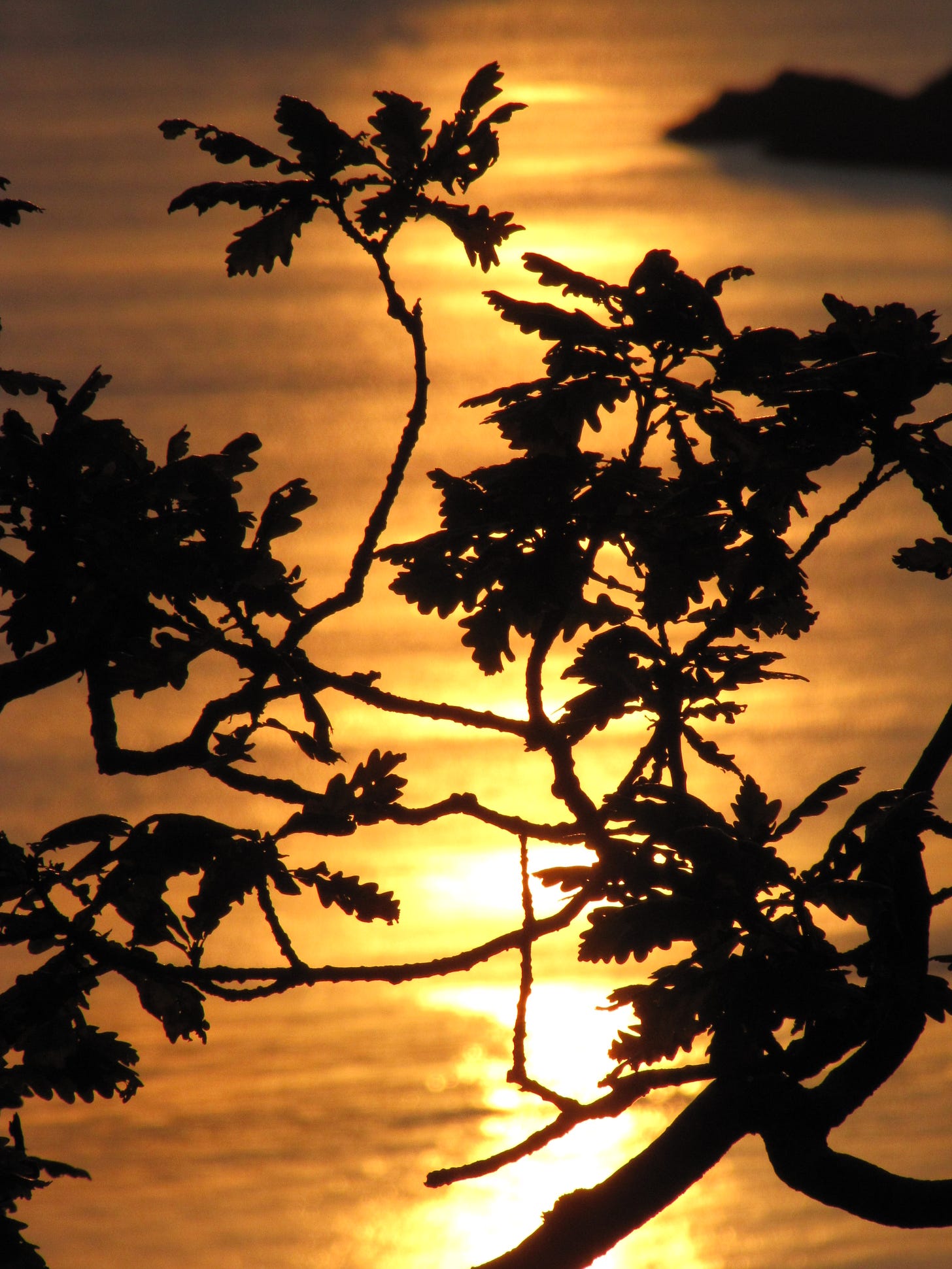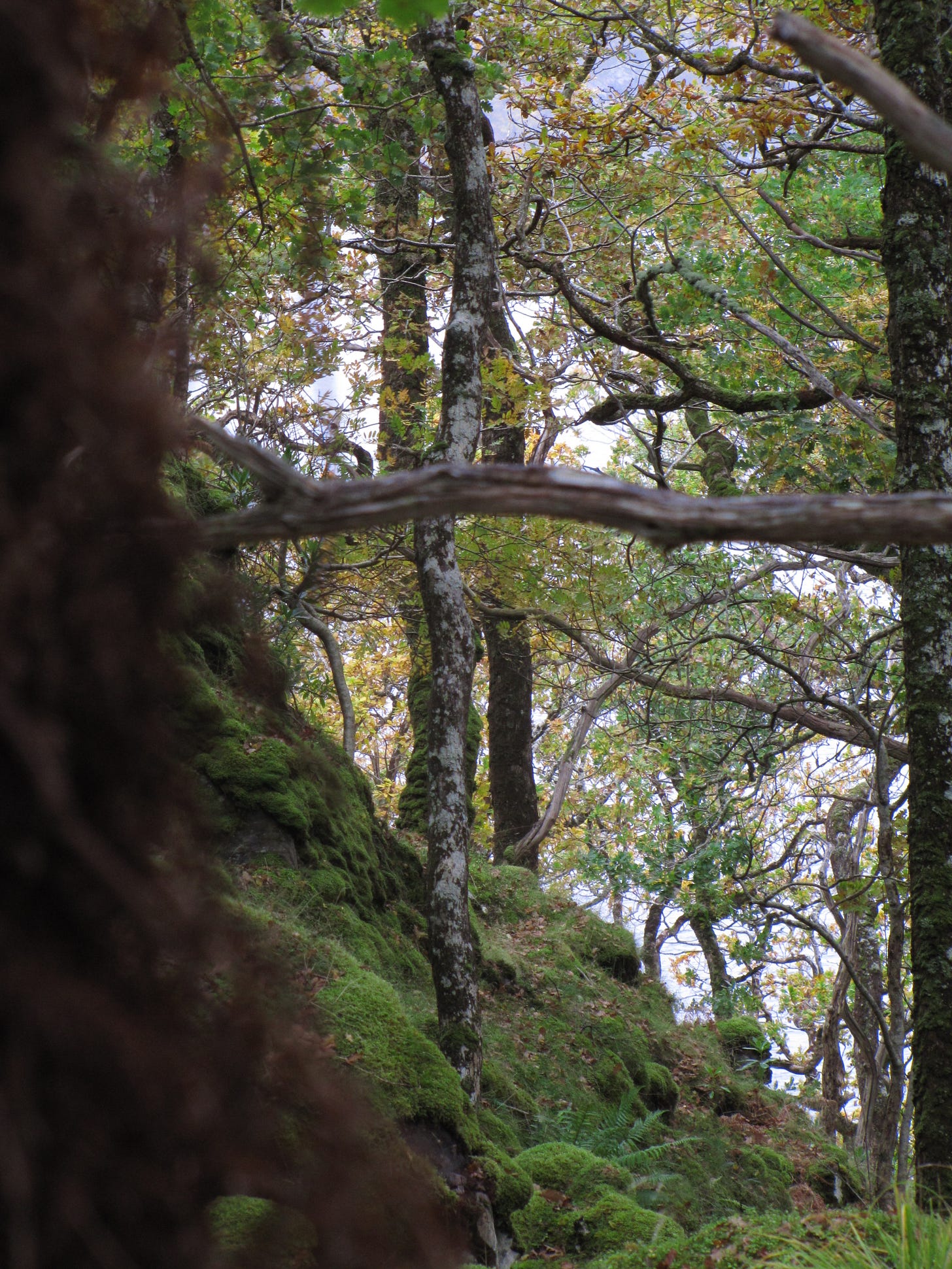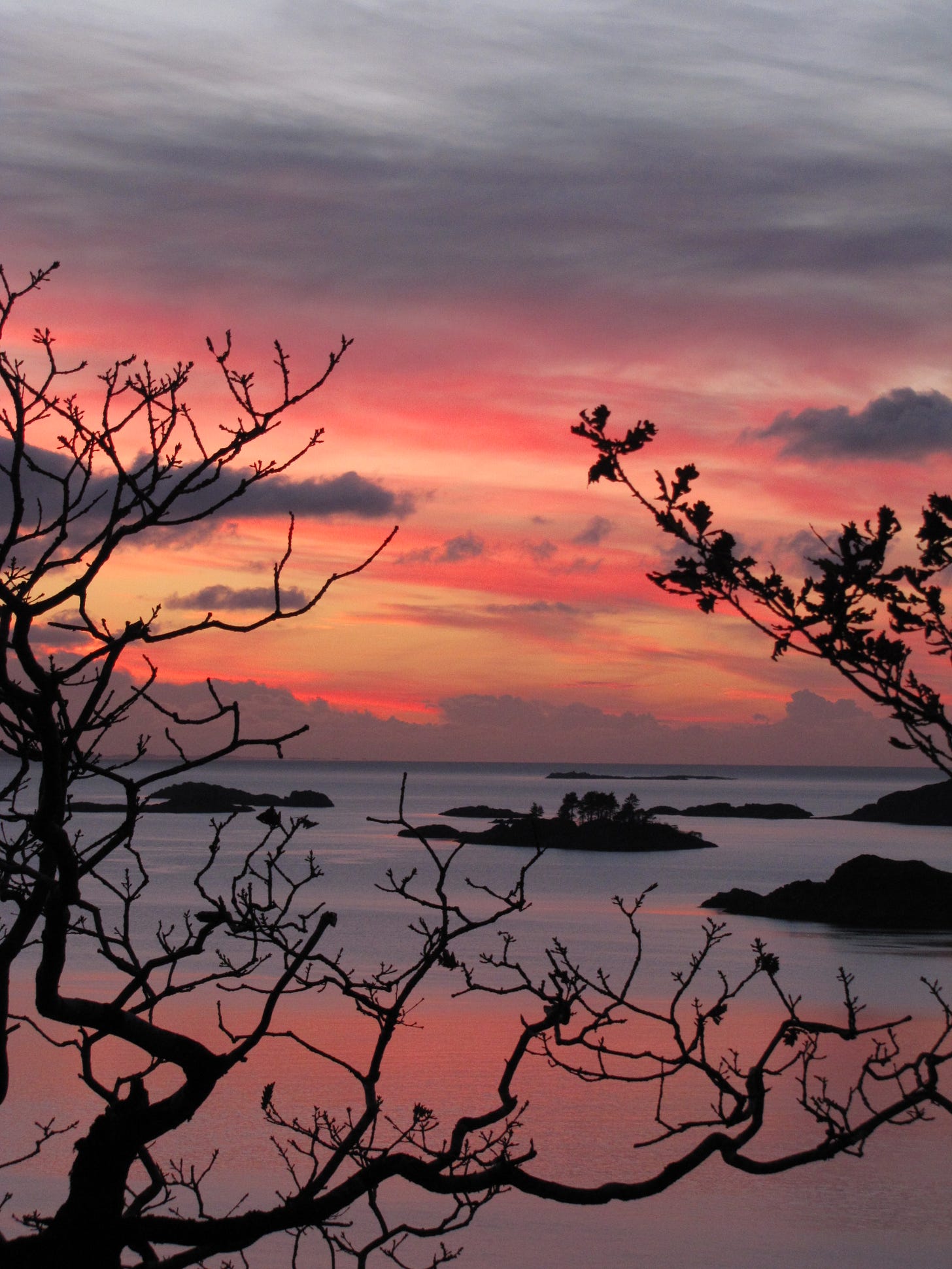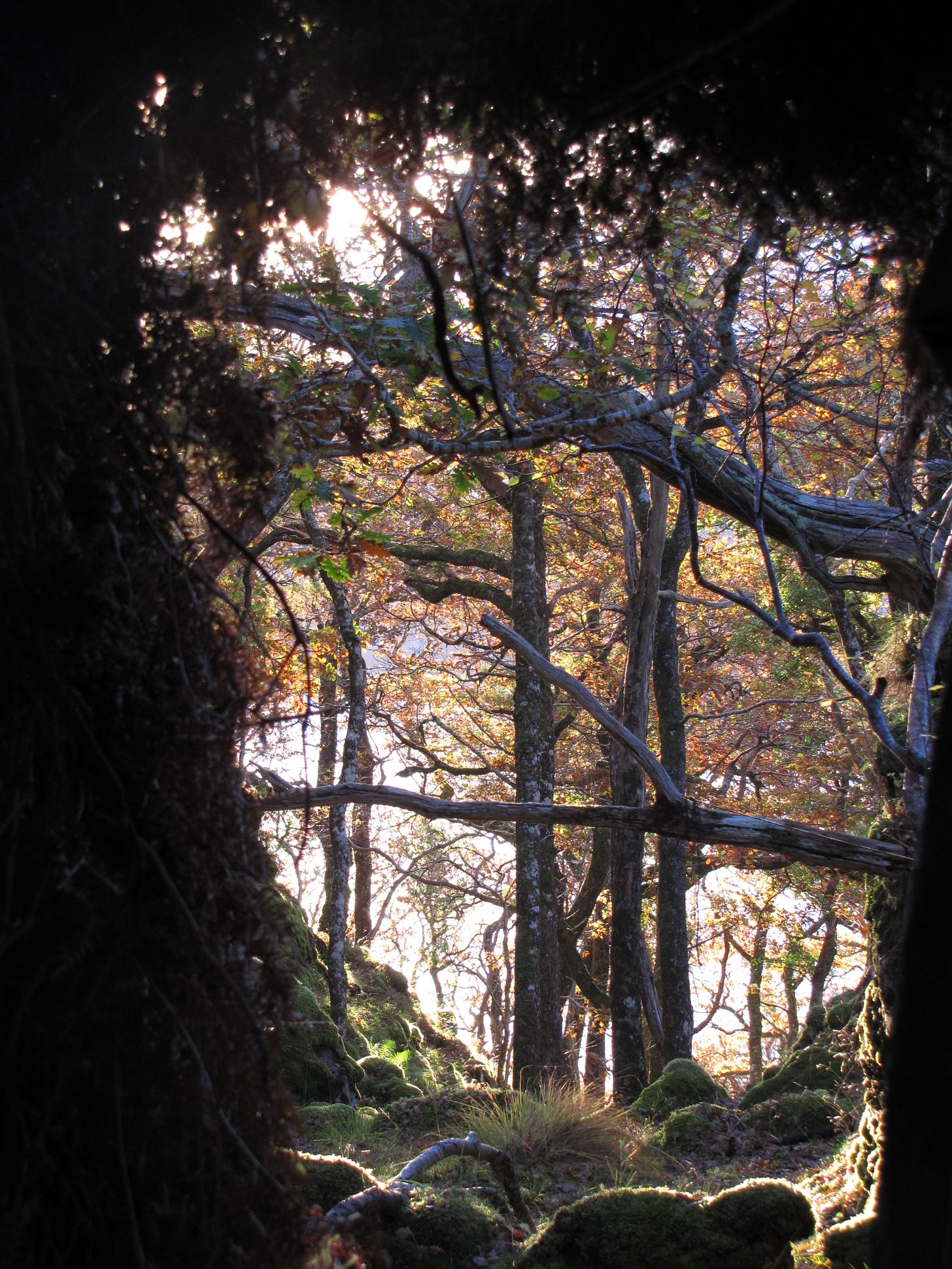So far, in this first season, I’ve introduced the topic, and talked about how to be a naturalist and how to respect your senses and intuition. For each of these two facets of respect, I have offered practical ideas and considerations, whether with taking your very first steps into identifying something, or through taking a very different nature walk to the one you might be used to.
Here, I want to address modern perspectives of respecting nature, and those which our ancestors would have followed, combining these and suggesting ways in which each can be used to restore balance to wilder places.
Let’s begin by looking at those who came before us. This is something heavily romanticised, the idea of the noble savage, at one with nature—an uncomfortable hangover from days of colonial past.
Were our ancestors always careful, walking softly wherever they trod? Yes, and no.
No, because when a semi- or fully-nomadic tribe would move from one spot to another, or an extended family group leave behind their winter hunting grounds, they would also exit a natural landscape substantially altered.
A large number of humans living in an area creates a lot of mess. We cannot escape this fact. There are issues with faeces, with constant footfall, with over-gathering and over-hunting. If you could go back in time and see such a camp, freshly abandoned as the people moved on—perhaps to the salmon spawning grounds, or to gather the berries upslope in high summer—you would recognise the scene as similar to those areas of, for example, National Parks, closest to the bigger car parks. Bare earth, few understory plants, damage to trees, missing deadwood, and lots of poop. There would be no empty bottles or cans, or blowing bits of toilet roll (or that held down by rocks—a pet hate of mine), but otherwise it would feel familiar.
We can, however, also argue that yes, all of this was balanced by one simple reason.
Our ancestors understood their actions and accepted them as a part of nature.
They knew they could not return to the same winter trapping area, year after year, they knew that there would be nothing there to trap. Similarly with hunting—there are examples of groups who would hang the skulls and bones of the animals they gathered on a tree, so each member would know what to hunt, preventing over-harvesting. To understand this process of cyclical damage and repair meant that those ancestors were both better prepared, in order to survive themselves, and also stewards of the lands upon which they lived.

The tendency to romanticise these peoples, whether in more recent periods, such as those who lived (and still live) in what are now the Americas, or those who inhabited Europe, Africa, or Asia ten thousand or more years ago. It is all too tempting to consider them as existing in pure harmony with their world, ignoring the fact that a tribe of humans needs a lot of food, water, and fuel to stay alive. Yes, there were more abundant resources, yes, there were sometimes species which are now extinct, and yes, the ancestors knowledge of the land far, far, outweighed our modern efforts but it does them an injustice to somehow consider them as Tolkien’s elves, gently tending their forest charges, keen to remedy any damage, flitting and floating through the woods in some sort of halo of light.
Instead, we should see them as the apex predator they—and we—are.
And what does a predator do? It hunts, and it kills.
Prehistoric people would have respected the animals they lived off, along with the fish runs, the bounty of coastal lands, the plants and flora they could utilise on a daily basis and the water which provides life to all—and they would have respected it fully aware of their impact, aware of their place at the top of the food chain as no other species ever has.
Indigenous hunter-fisher-gatherers have always been made out as scapegoats, perhaps from the time of the very first farming or pastoralist communities. It is far easier to fear and blame the unknown—just look at the fear travelling people cause, even now, “Keep your doors locked and children close, the gypsies are camping nearby.” Yet the state of ecological and environmental depletion much of our world finds itself in today would have been alien to those ancestors. Imagine what they would have thought, had they witnessed the aftermath of a clear-cutting forestry regime, or could smell and taste the acrid air of a polluted city, or witness animals kept penned in cages?
A whale, whether beached on the shore or hunted with canoe and primitive harpoon, would have provided a tremendous bounty, but modern whaling, for “scientific research”? I suspect that would have been as sickening for them as it is for many of us.
I could go on, listing examples and, indeed, in the draft of this piece, I did. Yet, as I typed, one key point presented itself—these are all questions of scale, as is almost every problem our species currently faces. And this question of scale could be measured with a currency of greed—where there is money to be made, nature always takes second place.
That, perhaps, is the key difference between hunter-fisher-gatherers and ‘us’. Money.
But what of the good in the world today—and, despite what the media would have you believe, there is a lot of good. What of those who champion nature, who do their best to preserve, conserve, rewild, reintroduce, study and promote the wonders around us?
In my point of view, there is much to recommend these schemes and people, but they also raise other issues. For example, how did we get to the point where a child, picking wildflowers as a gift for their mother, can be vilified for doing so?
Many of the tenets of modern environmentalism, such as leave no trace, or take nothing but pictures, leave nothing but footprints, also leave a sour taste in the mouth. I understand why they were widely shared and adopted, but placing simplistic rules and blanket bans on collecting or foraging natural materials does little to get to the heart of the problem. It is a band-aid on a broken leg.
Acknowledging a lack of species diversity, a lack of species density, and fragmentation of habitat is of paramount importance—and, by shifting the blame to the individual, it does us all an injustice. Often, these issues are a cumulative problem, one which usually has its roots in industrialisation and, ultimately (again), money. Pesticide and herbicide use has deprived many areas of the beauty they once possessed and then, when a child gathers a bouquet, they are told off for doing so? Does that seem fair?
To look at the scale of the problem is to feel overwhelmed. Take wild flower meadows, as an example. In the UK, since the 1930s, it is estimated 97% of such have disappeared.
97%.
I don’t need to comment on this horrific statistic but I will say that, here, where I currently live in France, there are still many, many such meadows—in Eastern Europe, there are even more. I am lucky—I grew up in Orkney, where there are still many wild flowers, then lived in Caithness, where there are some outrageously beautiful examples of meadows and the insect life which hums and thrums amongst them but, for many people, they simply do not know what they are missing. Therefore, even the statistic loses its significance.
If we do not know nature as it should be, we cannot possibly know what we are missing.
Is there an answer to these problems? Of course there is, and it is a solution which begins with education. As so many solutions do.
We do not teach our children about the wonders of nature as we should, and we certainly don’t teach them of our own place within an incredible whole. There are, of course, outliers but, on the whole, organised education prefers other subjects. I had my parents to help me, and I had an inspired and inspiring teacher too, but many do not have this luck. Even in those schools where discussion of nature is valued, I would argue that many of these lessons are based on outdated ideas about the natural world.
Would it not be better to teach our children about their hunter-fisher-gatherer ancestors and their role in nature, not just in a fleeting term project, but as an ongoing lesson? This could be both practical and academic, with a vast range of options available.
I understand this is a ridiculously impractical idea. The logistics of it would be mindboggling—not least, where do you find all the teachers who already understand this topic?
But teaching children to value and respect nature—not as a ‘do not touch’ nature, but as a down in the mud, dirty, and very much hands-on nature—that would be something which could utterly change our world for the better.
As soon as we learn the value of something, not in monetary terms, but as something practical and useful, as something as a part of the tangled web of nature, we vastly deepen our respect for it.
How can we help?
By learning and by teaching. These two things are so tightly entwined as to really be one. If we open our minds to accepting how little we know, we are already halfway there.
I would also advocate certain, perhaps illegal in your area, strategies (I suppose this is the point I should tell you to check and how I cannot be responsible, etcetera…).
Let’s take your usual walk as an example. The one you are most familiar with, perhaps through a woodland, along a coastal path, or following the edges of fields. If something is disturbed here, whether by man or animal—perhaps a patch of verge which has been dug over to lay pipes, or an area turned by badger or wild pig—you will notice. You will see this fresh soil and you will note it in your mind, placing the location on that mental, four-dimensional, map I discussed.
Now, using your mental map, you remember that those flowers a little further on your path—whose blooms you have been enjoying for weeks—have now gone to seed and you continue, with purpose, harvesting a handful of the pods which have yet to spill their contents, taking them back, and sowing them, scattering over the bare earth and mixing into the topsoil. Or, perhaps, you place them in a pocket, to plant them on tomorrow’s walk.
Planting seeds on someone else’s property can not only frowned on, but also illegal. Even seeds which come from a species which is growing a stone’s throw away. Yet, by doing this, you are giving those flowers a chance to spread wider, faster. Is this such a bad thing? You have to decide.
Imagine this is a medicinal species. Or an edible one. Now, you have an added resource, one which increases your chances of a decent harvest, whilst also providing habitat and food for other species. All is woven together.
Other than education, communication is key. If we talk to those who would damage our natural world (those who believe nature should be ordered, neat, with lawns and beds and a lack of dead things), we can help our area.
In next week’s post, I shall talk further of what we might do to respect the nature itself, suggesting some other ideas and elaborating on the ones here.
Which leads me to my final point. The nature.
If you talk to people from Sweden, for example, they always refer to nature with the added definite article.
The nature.
Not nature, but The Nature.
For some reason, I find this works better. It makes it a thing which has more power, something we can aspire to be a part of. Words have strength and words can shape a thing and, I believe, this is a good example.
We are a part of The Nature, it has been our home, our supermarket, our fuel store, our water supply, and our spiritual world, for as long as we have existed. Surely, it cannot be too hard a thing, to return to a state where we understand this, to fully respect the nature as it deserves? I have to believe it is possible.







